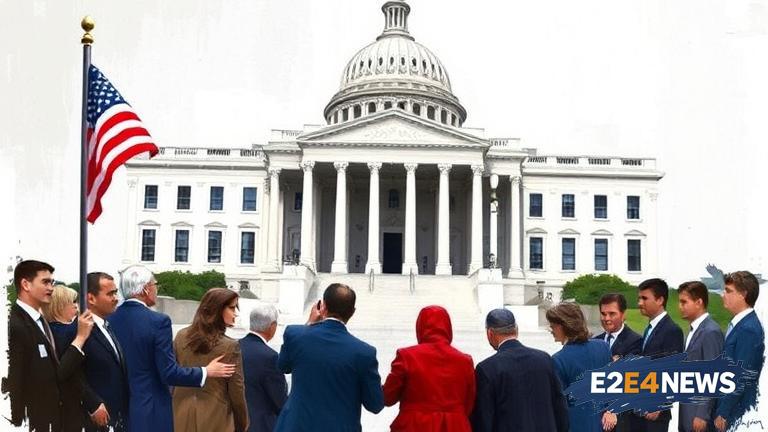The current state of American politics has become increasingly polarized, with many citizens feeling a strong sense of division and discontent. C-SPAN’s Washington Journal, a daily program that airs on the network, has been tackling this issue head-on, providing a platform for experts and everyday citizens to share their thoughts and opinions. The show’s hosts and guests have been discussing the root causes of this divisiveness, including the role of social media, the 24-hour news cycle, and the increasing partisan rhetoric. According to some experts, the rise of social media has created an environment in which people are more likely to engage with those who share their views, rather than seeking out diverse perspectives. This can lead to a kind of ‘echo chamber’ effect, where individuals become more entrenched in their beliefs and less willing to consider alternative viewpoints. The 24-hour news cycle has also been cited as a contributing factor, as it can create a sense of urgency and crisis, even when none exists. This can lead to a kind of ‘outrage fatigue,’ where people become desensitized to the constant stream of negative news and begin to tune out. The increasing partisan rhetoric has also been identified as a major contributor to the growing sense of divisiveness. As politicians and pundits continue to use inflammatory language and make personal attacks, it can create a toxic environment that discourages civil discourse and respectful disagreement. Despite these challenges, there are still many reasons to be hopeful about the future of American politics. For example, there are many organizations and initiatives working to promote civic engagement and encourage people to get involved in the political process. These efforts can help to build bridges between different communities and foster a sense of shared citizenship. Additionally, there are many examples of politicians and public figures who are working to promote bipartisanship and find common ground. These individuals can serve as role models and inspire others to follow in their footsteps. The Washington Journal has also been highlighting the importance of media literacy and critical thinking in navigating the complex and often confusing world of modern politics. By teaching people how to evaluate sources, identify biases, and think critically about the information they consume, it is possible to create a more informed and engaged citizenry. Furthermore, the show has been emphasizing the need for greater empathy and understanding in American politics. By putting themselves in others’ shoes and trying to see things from different perspectives, people can begin to break down the barriers that divide them and build a more compassionate and inclusive society. Overall, the issue of political divisiveness is complex and multifaceted, and there are no easy solutions. However, by promoting civic engagement, media literacy, and empathy, it is possible to create a more positive and constructive dialogue about the future of American politics. The Washington Journal will continue to play an important role in this conversation, providing a platform for experts and everyday citizens to share their thoughts and opinions. As the country moves forward, it will be important to prioritize respectful disagreement and civil discourse, even in the face of strong disagreements. By doing so, it is possible to build a more united and prosperous America, where everyone has the opportunity to thrive. The show’s hosts and guests have been discussing the potential consequences of continued divisiveness, including the erosion of trust in institutions and the breakdown of social cohesion. They have also been exploring the ways in which technology can be used to promote greater civic engagement and participation. For example, online platforms can be used to facilitate discussions and debates, and to provide people with accurate and unbiased information about the issues that affect their lives. Additionally, social media can be used to mobilize people around social and political causes, and to create a sense of community and shared purpose. However, it is also important to recognize the potential risks and challenges associated with these technologies, including the spread of misinformation and the amplification of extremist views. By being aware of these risks and taking steps to mitigate them, it is possible to harness the power of technology to promote greater understanding and cooperation. The Washington Journal has also been highlighting the importance of education and critical thinking in navigating the complex world of modern politics. By teaching people how to evaluate evidence, identify biases, and think critically about the information they consume, it is possible to create a more informed and engaged citizenry. This, in turn, can help to promote greater civic participation and a more robust and resilient democracy. In conclusion, the issue of political divisiveness is a complex and pressing challenge that requires a multifaceted and nuanced approach. By promoting civic engagement, media literacy, empathy, and critical thinking, it is possible to create a more positive and constructive dialogue about the future of American politics. The Washington Journal will continue to play an important role in this conversation, providing a platform for experts and everyday citizens to share their thoughts and opinions.
